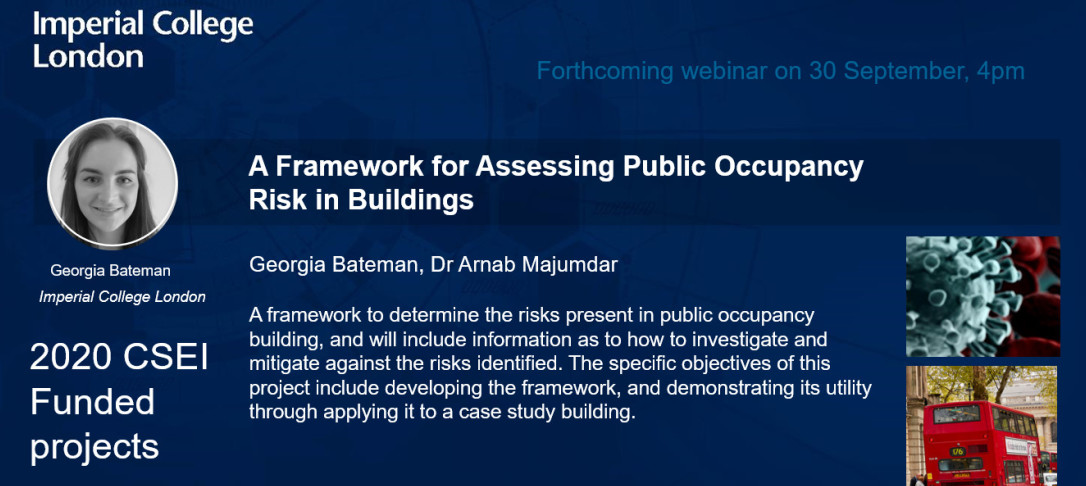
The safety of members of the public occupying large, complex buildings such as airport terminal buildings, sports stadiums, train stations and office buildings is of paramount importance. Designated as Critical National Infrastructure, occupants within these types of buildings are often subject to increased external threats from terrorism events, but internal events and day-to-day hazards are also present in these systems. Often safety considerations related to the operational phase of a building lifecycle are neglected, and current systemic hazard identification methods are unable to incorporate a sufficient level of detail on hazards and risks to members of the public that is necessary, as they do not incorporate information on typical processes of occupants.
This research talk will introduce a new framework that has been developed based on qualitative research methods and systems engineering concepts that can be utilised to investigate and aid with risk assessments for members of the public in large, complex buildings. The framework is applicable to both particular classes of buildings, and to individual examples.
The framework developed consists of six steps including initial hazard identification and stakeholder mapping processes. Qualitative research methods – stakeholder interviews – form an integral component of the developed framework, as do model-based systems engineering methods. The talk will also describe how the framework was applied to a case study example – a large office building located in London, to aid with hazard and risk identification in relation to threats arising from Covid-19.
Biography:
Georgia Bateman is a Postgraduate Researcher in the Lloyd’s Register Foundation Transport Risk Management Centre, based in the Centre for Transport Studies in the Department of Civil and Environmental Engineering at Imperial College London.
The main focus of her research is the safety of large, complex public occupancy buildings such as airport terminals and sports stadiums. She incorporates both scientific and social science research methods in her work, utilising concepts from systems engineering, physics and social psychology. She has presented her research at numerous international conferences and published in peer reviewed journals such as Safety Science. She recently co-developed a new module for the MSc Transport course at Imperial College London on Pedestrian and Evacuation Dynamics. In addition to her research, she is passionate about STEM outreach.
To register please visit https://imperial.eu.qualtrics.com/jfe/form/SV_b7SaARAYDSFTDDf


